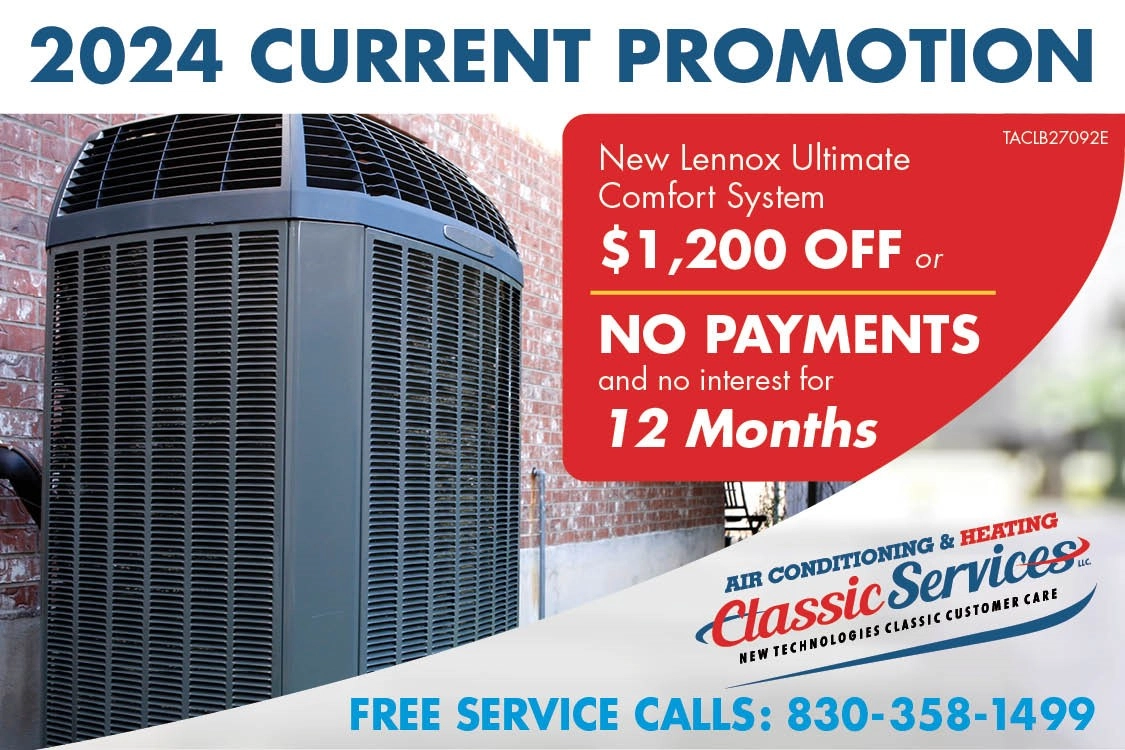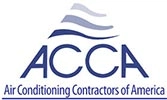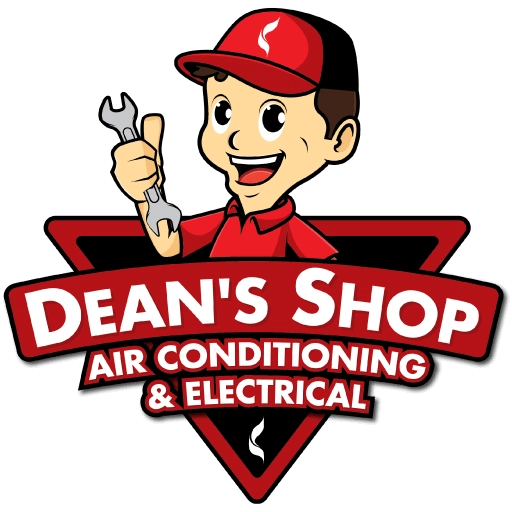Give us a call now for an immediate match with a local pro.
Click to Call(833) 824-3371(833) 824-3371
Last Updated: February 25, 2025
On average, 55% of energy use in American homes goes toward heating and cooling, according to the Department of Energy. In San Antonio, you're probably looking to reduce your energy usage and save money on your bills.
We've assembled this guide to San Antonio's top HVAC companies to help you choose the best person for your job and get your system into top shape.

Our Rating
User Rating
Reliable customer support
Informative resources
Free quotes
Prompt service delivery
Services Offered

Our Rating
User Rating
Reliable customer support
Informative resources
Clear pricing policy
Free quotes
Services Offered

Our Rating
User Rating
Free quotes
Clear pricing policy
Reliable customer support
Prompt service delivery
Informative resources
Services Offered

Our Rating
User Rating
Clear pricing policy
Free quotes
Prompt service delivery
Reliable customer support
Informative resources
Services Offered

Our Rating
User Rating
Informative resources
Free quotes
Reliable customer support
Services Offered

Our Rating
User Rating
Clear pricing policy
Free quotes
Reliable customer support
Informative resources
Services Offered

Our Rating
User Rating
Free quotes
Reliable customer support
Clear pricing policy
Prompt service delivery
Informative resources
Services Offered

Our Rating
User Rating
Prompt service delivery
Informative resources
Free quotes
Services Offered

Our Rating
User Rating
Clear pricing policy
Free quotes
Prompt service delivery
Reliable customer support
Informative resources
Services Offered

Our Rating
User Rating
Free quote
Clear pricing policy
Informative resources
Reliable customer support
Services Offered
Today's Homeowner looks at dozens of datapoints on hvac companies to come up with our data-driven rankings. It's not possible for a company to pay for preferential treatment in our rankings. We look at the following key factors in determining who should top our list:
A malfunctioning or aging HVAC system probably needs attention from a professional who can make repairs or install a new unit. Watch out for these common signs that your HVAC needs service:
Book an inspection if you notice any of these problems. A local technician can inspect your system, detect problems, and determine whether you need repairs or a new HVAC unit.
What you spend on HVAC installation or maintenance varies based on your system type. Common HVAC unit styles include the following:
HVAC maintenance prices vary depending on the particular service needed. HVAC systems are complicated and may require different kinds of maintenance. Costs for some common services are as follows:
| HVAC Unit Type | Cost | |
|---|---|---|
| Split | $1,689-$4,306 | |
| Hybrid Split | $3,423-$6,306 | |
| Heat Pump | $2,650-$27,005 | |
| Packaged Heating and Air | $222-$370 |
It’s important to complete repairs or full-system HVAC replacements as needed, though they can be expensive. The good news is that homeowners have methods to decrease the effect of wear and tear and reduce the frequency of breakdowns.
| Service | Cost | |
|---|---|---|
| Filter Replacement | $55-$148 | |
| Condensor Cleaning | $1,109-$3,327 | |
| Thermostat Repair | $74-$185 | |
| Ductwork Cleaning | $355-$887 |
Knowing what makes a trustworthy HVAC company is vital for a successful installation or repair. Hiring an experienced, credentialed HVAC contractor gives you confidence your system can provide consistent heating and air conditioning year-round.
Contact at least three HVAC companies for quotes. Describe the issues and have specialists visit to inspect your HVAC system if possible. Compare the companies' explanations, solutions, estimated costs, warranties, and timeframes. Avoid providers that pressure you or demand payment upfront.
When selecting an HVAC provider, choose one with technicians that have the proper training, licenses, and experience. HVAC contractors in all states need to obtain a Section 608 Technician Certification from the Environmental Protection Agency (EPA). This certification is mandatory for all contractors who "maintain, service, repair or dispose of equipment that could release refrigerants into the atmosphere." An individual must pass an exam (the type of exam depends on what kind of equipment they intend to work with) to be certified by the EPA. All other licensing requirements are handled at the state level.
In Texas, HVAC contractors must be licensed by the Texas Department of Licensing and Regulation. Contractors need to have at least four years of experience within the past six years and must show proof of insurance. An individual can also be a registered technician, which has no experience requirements, or a certified technician, which requires two years of experience. Both registered and certified technicians must be supervised by a licensed contractor. Checking reviews on Google Reviews, Yelp, the Better Business Bureau (BBB), and similar sites can assist your decision as well. Choose a company with great reviews and stories of positive customer experiences.
Always make sure you understand what a company’s process looks like. When getting HVAC repairs, ask your provider to list which parts require replacement and explain why. Confirm that your technician will clean and test the full system after finishing the work to ensure proper operation. When replacing your HVAC, ask the provider to explain the new estimated installation time, brand, energy efficiency, model, and features. Before signing paperwork, make sure you understand the process your provider will use to size the new HVAC system appropriately for your home and what the price will be.
Reputable HVAC companies back their services with warranties. Look at warranties from different companies, while remembering that more comprehensive coverage is better. Look for the company that provides the most coverage for a reasonable price.
Get written estimates before beginning HVAC work. The quote should cover costs for both materials and labor. Review all terms carefully before signing.
You should have your HVAC system inspected twice a year. After completing their inspection, your technician will tell you what services are needed. You should also have your system inspected if you notice new issues such as unusual smells, strange noises, or leaks. If your home has ductwork, you should have it inspected every few years.
Usually, it's smart to have your HVAC system inspected in the spring and fall, as technicians tend to be less busy at these times. This also helps get your system ready for the summer and winter, when it typically sees the most use.
You can save energy during the summer by making it easier for your HVAC system to keep your home cool. Keep your thermostat temperature as close to the outside temperature as you comfortably can, and avoid making drastic changes in temperature all at once. Keep your roof in good shape and seal any leaks around your doors and windows to avoid letting cool air escape. Similarly, ensure that your attic is well ventilated to avoid trapping excess heat in your home.
Generally, HVAC installation or replacement takes between one and three days for the entire system. Installing or replacing an air conditioning unit or a furnace can take as little as half a day or as much as two days. The exact amount of time will depend on factors like the size of your house, how easily accessible different parts of the system are, and whether your technician finds any problems.
For a 2,000-square-foot home, try to purchase a furnace that's between 50,000 and 80,000 BTUs (British thermal units). In San Antonio, you may be able to make do with a furnace on the lower end of this range.
For a 2,000-square-foot home, you'll also want to purchase an air conditioning unit with between 2.5 and 5 tons of capacity. In San Antonio, you'll likely want something on the higher end of this range. In general, if your home is larger than 1,000 square feet, central air will be more effective than window air conditioning units.
Your HVAC company might provide financing options through a third-party lender, or you may choose to obtain your own loan. It's a good idea to discuss payment options with your HVAC company and a financial advisor to make sure that you find the best option for you.
